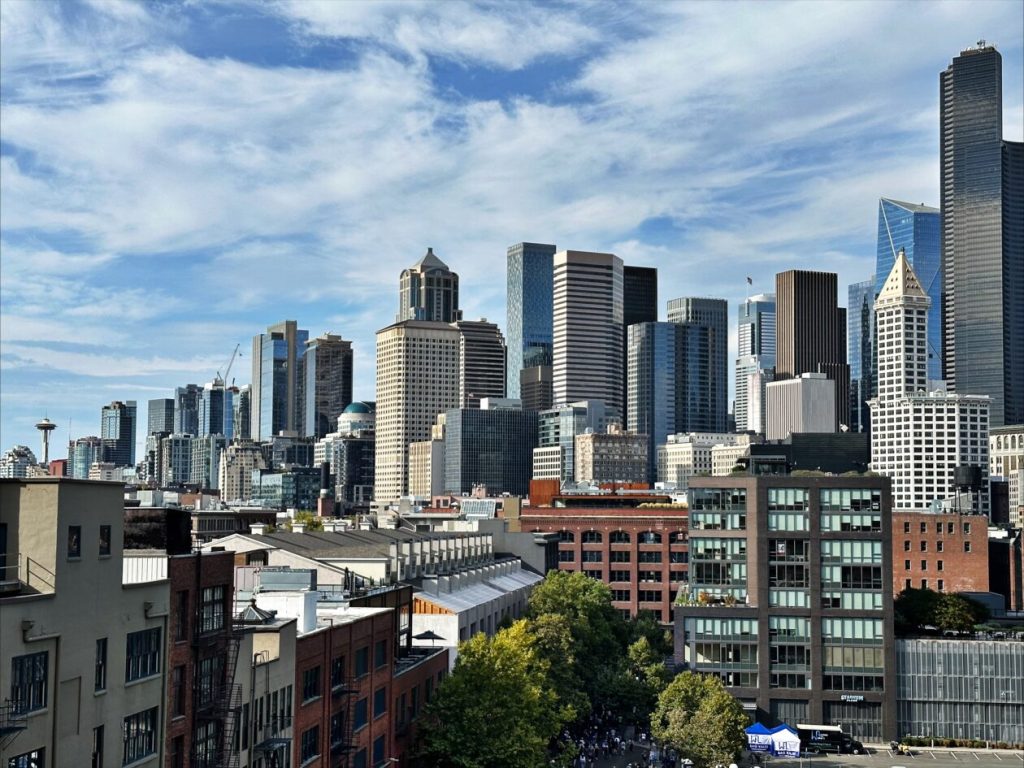The City of Seattle is set to receive $17.2 million from the Department of Energy to implement a program aimed at reducing carbon emissions from buildings to zero by 2050. This initiative is part of the Biden Administration’s efforts to combat climate change. The Seattle Building Emissions Performance Standard, approved in December, will impact over 4,100 existing buildings in the city, ranging from skyscrapers to community centers. The primary sources of greenhouse gas emissions in buildings are oil and natural gas, including furnaces, water heaters, gas stoves, and fuel leaks.
The federal funding will support various programs associated with the Building Emissions Performance Standard, including the creation of a support hub to assist building owners in implementing low-carbon upgrades, compliance fellows to help calculate and report greenhouse gas emissions, scholarships for facility managers, and initiatives to provide training and access to financial resources like grants and tax credits. These initiatives are intended to help building owners comply with the new rules and reduce emissions by 27% by mid-century. The Office of Sustainability and Environment will oversee the allocation of resources for these programs.
In addition to the funding for Seattle’s building emissions program, the Washington state Department of Commerce awarded nearly $5 million to public higher education institutions to help them reduce their carbon emissions. These investments reflect a growing recognition of the need to address climate change at the local and state levels. By supporting initiatives that aim to reduce greenhouse gas emissions, both the city of Seattle and the state of Washington are taking important steps towards a more sustainable future.
The Seattle Building Emissions Performance Standard will impact a wide range of building types, including residential, commercial, and institutional buildings. By targeting major sources of greenhouse gas emissions like oil and natural gas, the program aims to significantly reduce the city’s carbon footprint over the coming decades. The federal funding will help support building owners in meeting the new requirements and transitioning to more sustainable practices. By providing financial assistance, training, and resources, the program aims to make it easier for building owners to adopt low-carbon upgrades.
The new rules and initiatives associated with the Building Emissions Performance Standard represent a significant step towards achieving Seattle’s carbon neutrality goals. By targeting emissions from buildings, which account for a significant portion of the city’s greenhouse gas emissions, the program aims to make a meaningful impact on reducing carbon pollution. With the support of federal funding and partnerships with key stakeholders, the city is taking proactive steps to address climate change and build a more sustainable future for its residents.
Overall, the investments in reducing carbon emissions from buildings in Seattle and public higher education institutions in Washington state represent important steps towards achieving climate goals at the local and state levels. By implementing programs and initiatives to support building owners in transitioning to low-carbon practices, these initiatives are contributing to efforts to combat climate change and reduce greenhouse gas emissions. Through strategic partnerships and funding allocations, Seattle and Washington state are demonstrating leadership in addressing one of the most pressing challenges of our time.


